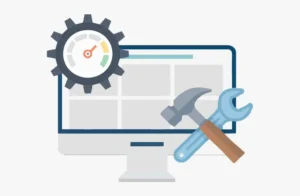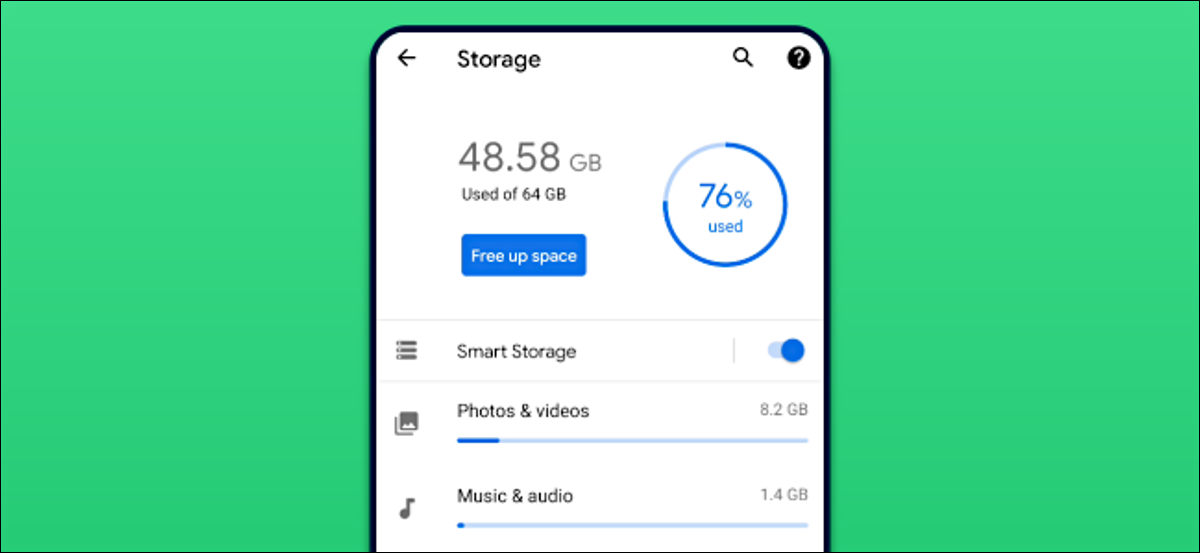
Storage space on smartphones and tablets can be easy to fill, especially if you use a phone or tablet for a long time. We will show you how to reclaim some of that space on your Android device.
It is feasible to get Android phones and tablets with 128 GB o 256 GB of storage, but there is a chance that you still have a device with 64 GB or inclusive 32 GB. If you don't keep all your files in cloud storage, it can be easy to run out of storage space.
RELATED: All cloud storage services that offer free storage
The good news is that you can free up some extra space when you need it., and Android phones have built-in tools to get the job done. At the same time, there are third party apps you can download to make it even easier.
Android built-in storage tool
Hay una sección de “Storage” en la configuración de cada dispositivo Android que le brinda información sobre lo que está ocupando espacio de almacenamiento. This section can also be used to free up space.
On your Android phone or tablet, swipe down from the top of the screen once or twice, después toque el ícono de engranaje para abrir el menú “Setting”.
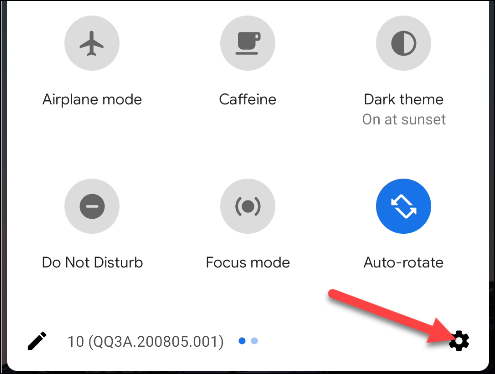

Next, select “Storage” on the menu “Setting”. On a Samsung Galaxy phone, primero deberá tocar “Cuidado del dispositivo” para tener acceso a la opción “Storage”.
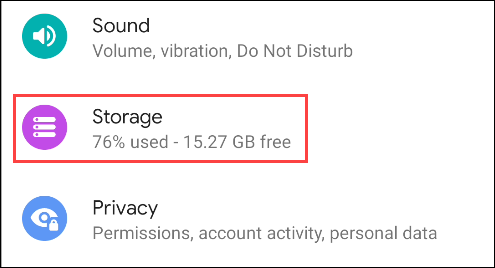

Towards the top of the screen, see how much storage you have used and how much is available. Below, there is a list of storage categories. Algunos teléfonos Android incluyen un botón “Liberar espacio” on this screen (more on that below).
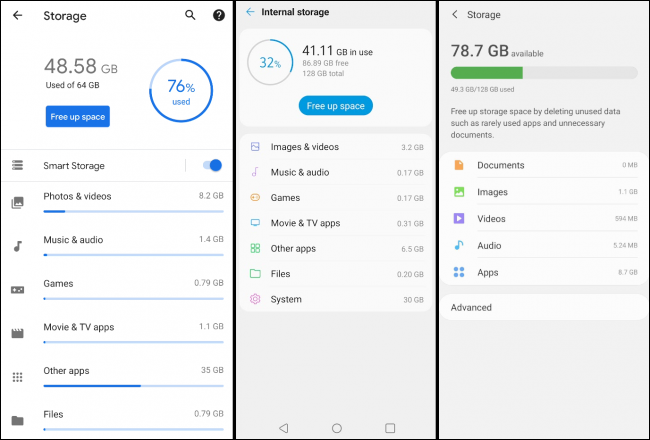

Select one of the categories to clean it.
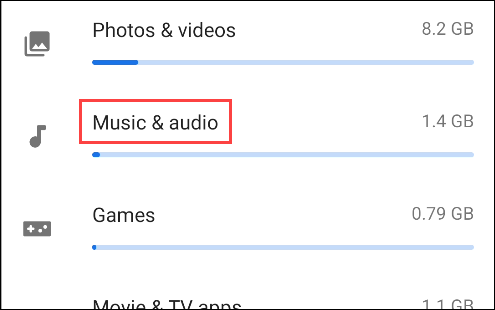

You will see a list of applications associated with the category. In this example, we watch music apps while cleaning audio files. Touch one of the apps.
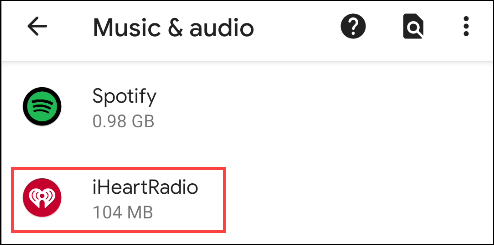

Touch “Although the following solutions are listed as” O “Eliminar caché”. Tenga en cuenta que al elegir “Although the following solutions are listed as” se restablecerá la aplicación, the session will be closed and all data will be erased.
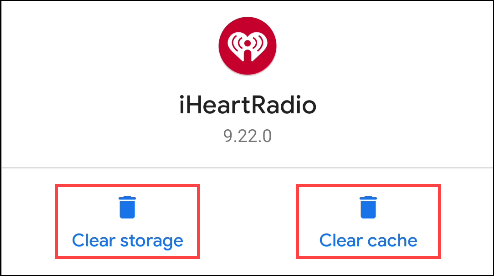

Alternatively, cada sección tendrá una opción de “Records” más genérica en el listado de aplicaciones. This is where you can remove files that are not directly associated with an application.
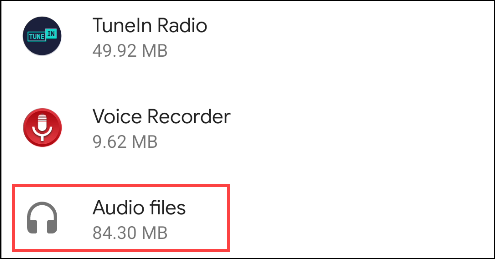

A file manager will open on the folder and allow you to choose which files to remove.
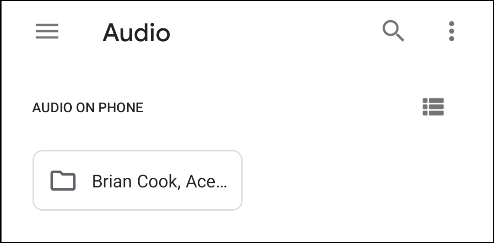

As mentioned previously, algunos teléfonos incluyen un botón “Liberar espacio” on the screen “Storage”. If your phone has this button, touch it.
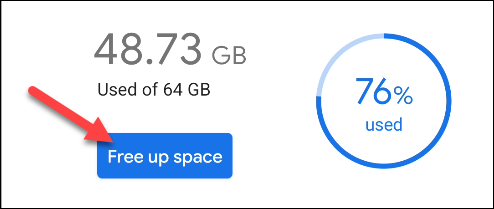

If you have file manager apps installed on your phone, you may be asked which application you would like to use to complete the action. El que queremos utilizar es “Almacenamiento inteligente”. Selecciónelo y toque “Solo una vez”.
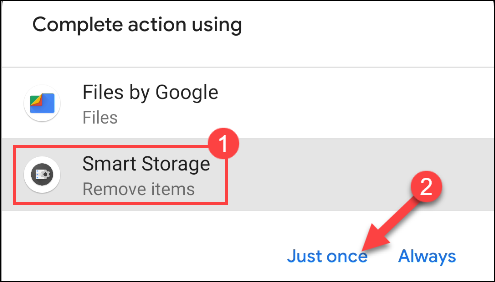

Next screen may vary, depending on the device you have. One way or another, you will see a list of suggested areas that can be cleaned to free up space. Next, some common areas you can see are shown:
- Backed up photos and videos: This will delete the media that has already been backed up to the cloud storage.
- Temporary files: Files such as cached data and clipboard items that are no longer needed.
- downloads: Items you have previously downloaded.
- Inactive apps / infrequently used: In general, this will show the apps you don't use often and allow you to uninstall them in bulk.
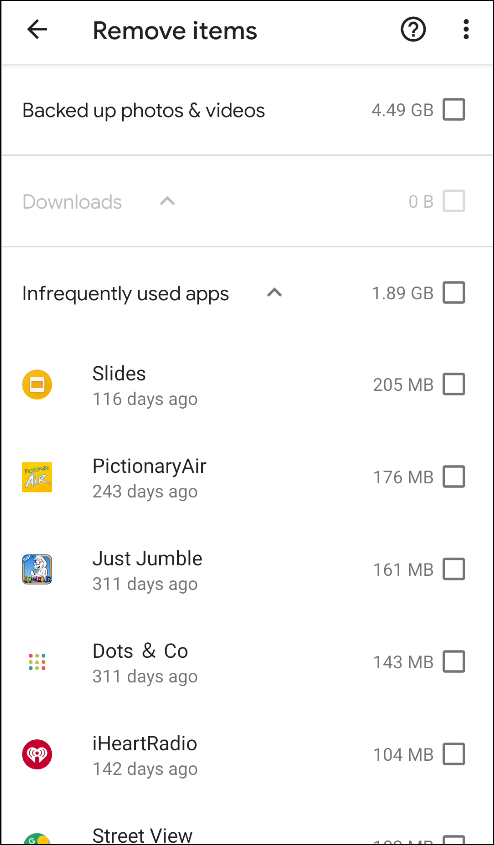

Look through the different areas and select everything you would like to remove. Touch “Liberar”, “Remove” O “Remove” para quitar los archivos.
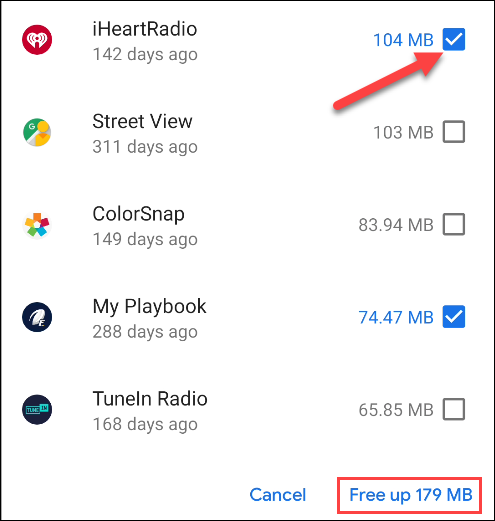

You can go back to the main Storage menu and check how much space you now have available on your Android smartphone or tablet.
Google files


If Android's built-in method isn't good enough for you, there are additional tools that you can install from the Google Play Store. “Google files, ”The company's own file management application, includes a tool to help people keep storage space tidy.
RELATED: How to free up storage space on your android mobile with Google files
Algunos teléfonos Android vienen con “Filed by Google” preinstalado, but it is enabled for everyone in the Play Store. The application has a useful tool that recommends things that can be removed from your phone, which saves you the hassle of doing it manually. Consulte nuestra guía para liberar espacio de almacenamiento con “Google files”.

